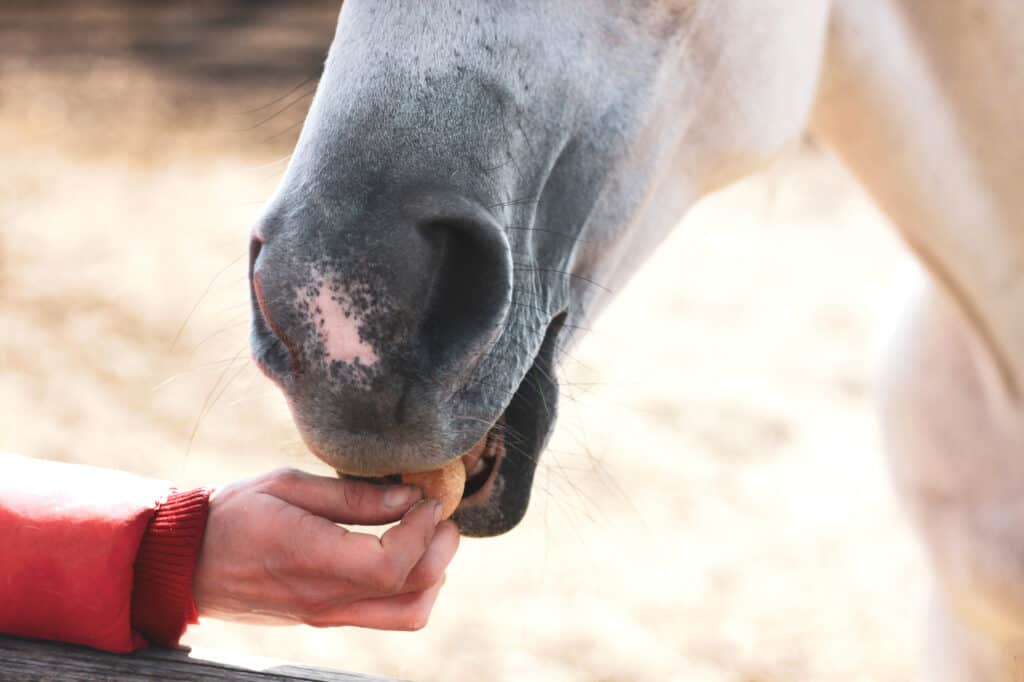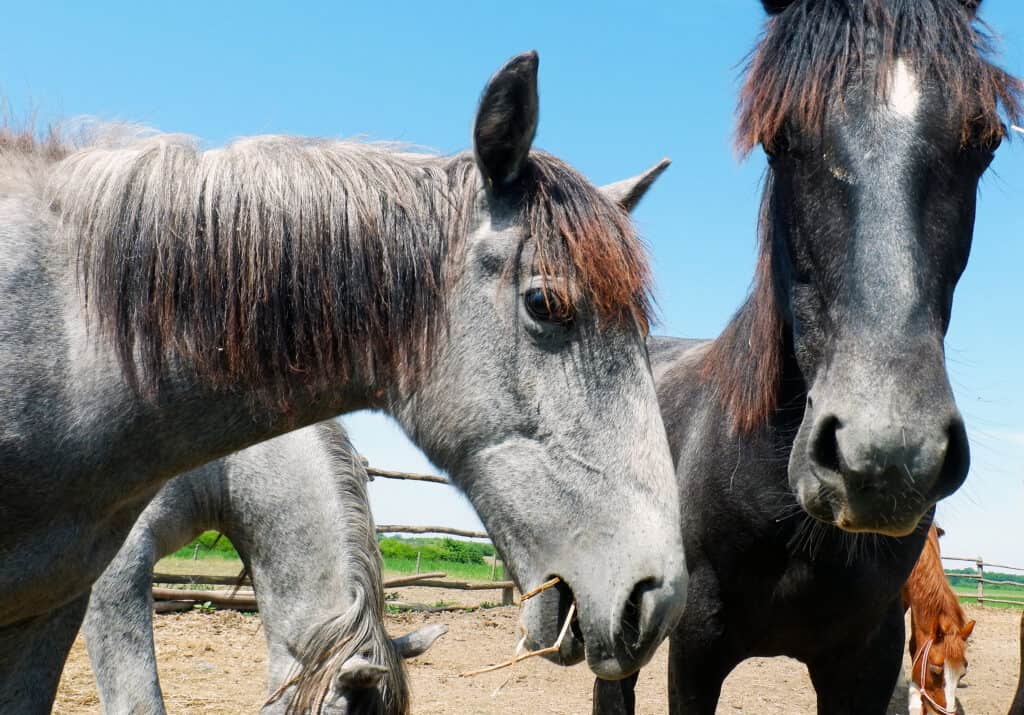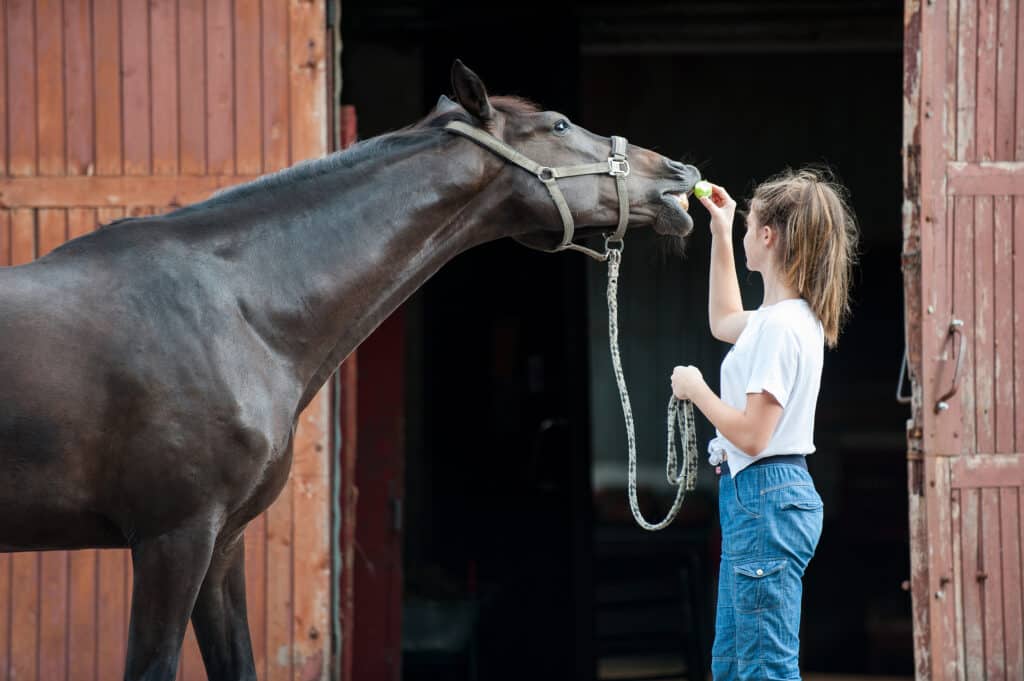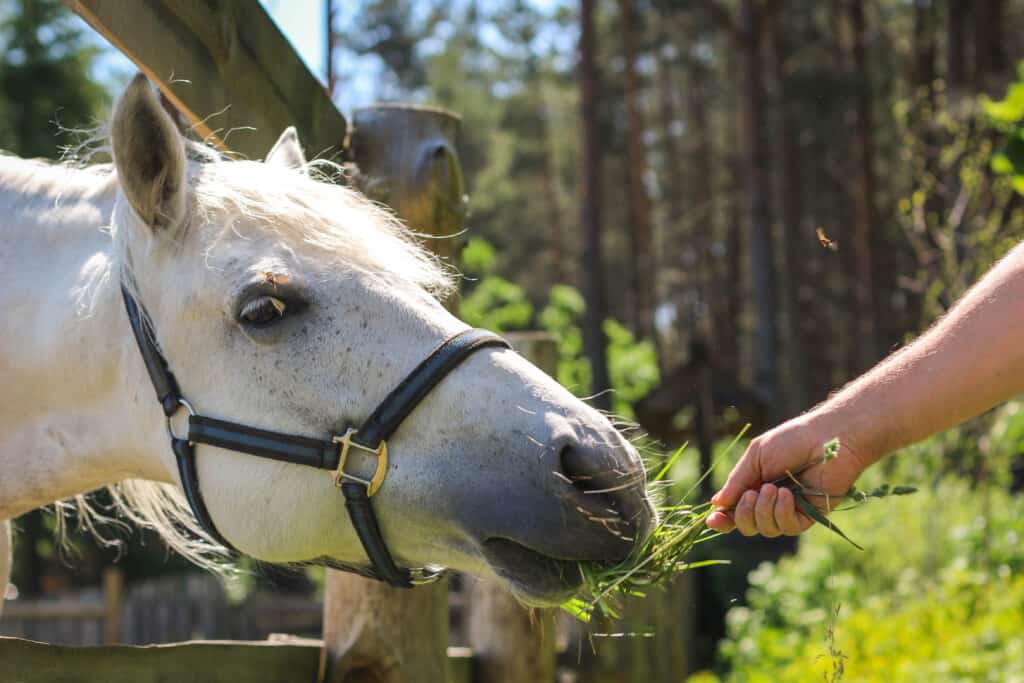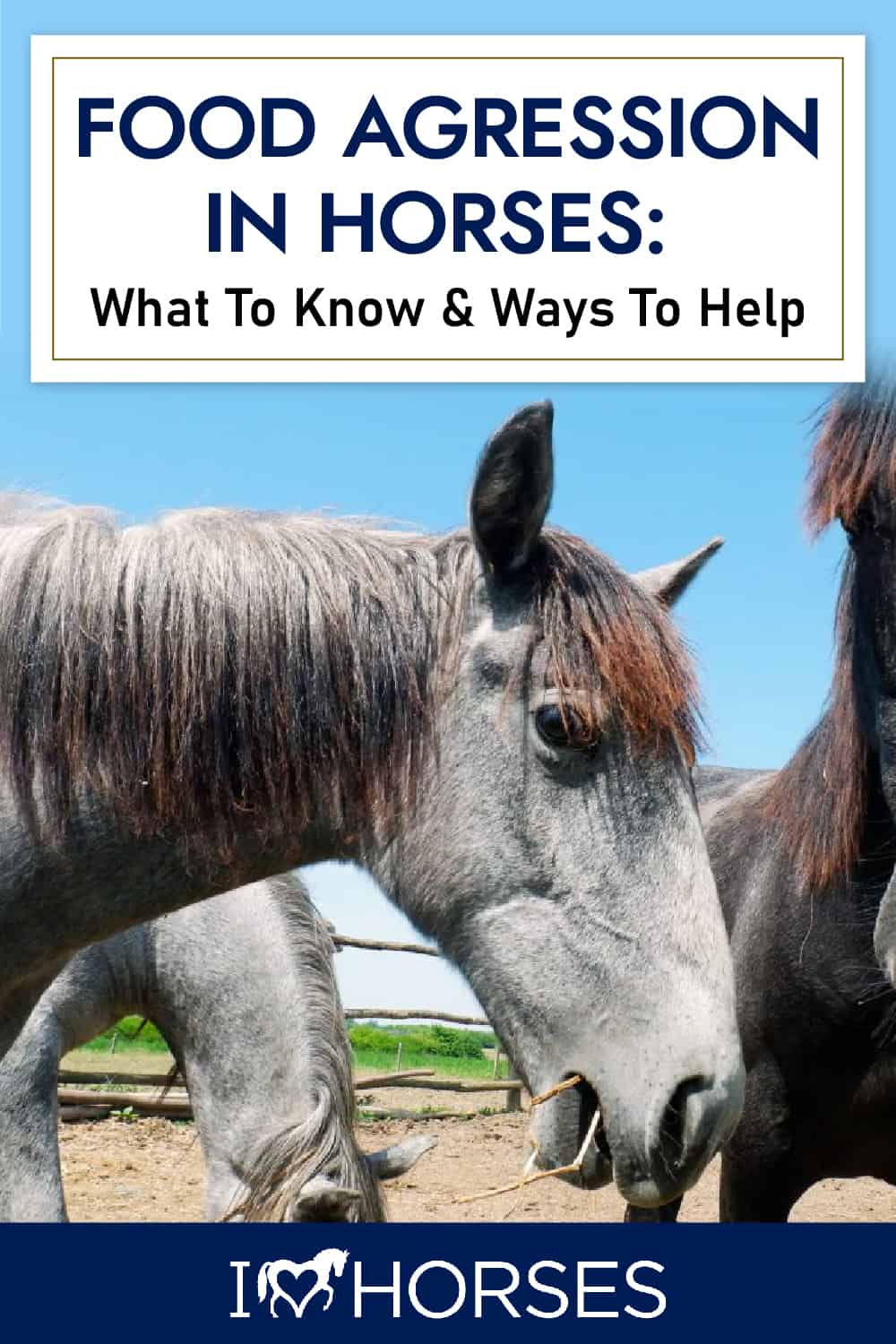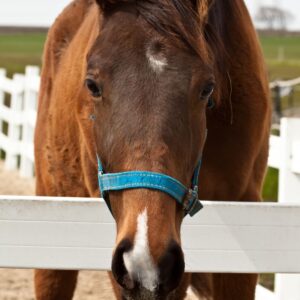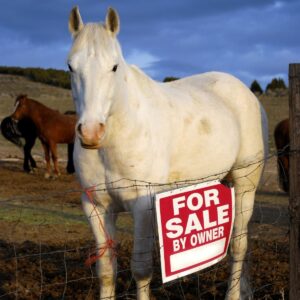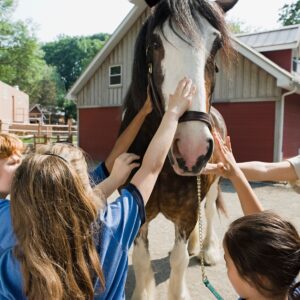Do you dread feeding time because your usually sweet horse has a complete personality change, and becomes food aggressive? Food aggression in horses is common but not desirable. Understanding why horses have this behavior will help us to teach them to change their ways. If you would like to learn how to make feeding time less stressful for everyone involved, this article covers the why's and what to do about food aggression in horses.
What causes food aggression in horses?
Survival of the fittest
Horses have survived for centuries with the motto "survival of the fittest." To be the fittest, they had to have access to the best food and water available. When a horse feels another horse threatens its food and water resources, instinctively, they will fight to protect that resource. In domestic horses, this instinctive behavior can lead to aggressive and dangerous habits.
Prior starvation and/or abuse
The psychological scarring caused by starvation can have a lasting effect. A horse that does not know when its next meal may come will fiercely defend the meal it has at that moment. This type of food aggression in horses is hard to change but not impossible. Rescue horses will often have this type of food aggression.
Low horse on the totem pole
If a horse is at the bottom of the pecking order in the herd, they often have to fight for whatever food they can get. The horses that cannot defy the hierarchy in the herd will sometimes become food aggressive toward you if they think you are lower in the herd than they are. It can be hard and dangerous not to be intimidated by a thousand-pound animal charging, which only strengthens their bully tactics.
Protecting his stall
Some domestic horses that live in stalls may eventually claim that space as theirs, and no one else is allowed. If you are not the leader in your relationship, the horse can develop disrespectful behaviors and food aggression. When you enter his "space" to feed, he will not want you intruding into his territory and definitely won’t want you to get between him and his feed.
Real food aggression vs. learned habit
The above are reasons for real food aggression. But, food aggression in horses can also be a learned habit. Horses learn by a reward given for a particular response. In riding, this can be a release of leg pressure as the horse moves away from it. A horse can learn food aggression in the same way. Here is how it works. We start to feed the horse, and he pins back his ears to warn other horses to stay away. We drop the feed into the bin. The horse learns: "If I pin back my ears, she will give me my feed faster, and the other horses stay away.” If this behavior continues for several feedings, it becomes a conditioned response of the horse asking for food. If the horse doesn't get their feed when they ask, they will get more aggressive. Similar to how we ask our kids to do something, then eventually raise our voice at them to get our point across.
A horse with this learned habit will usually not care if you hang out and pet him while he eats. But they can also get a bad reputation in the barn for always pinning their ears back every time someone walks by. A horse with real feed aggression will not want anyone near while they eat. Not even for a nice petting.
Signs of a food aggressive horse:
Imagine this scene. You take feed to your horse in his stall. As soon as you open the door, he is pinning his ears back and blocking the way to the feed bin. You enter the stall and try to gently push him out of the way. He responds by either pushing into you, barring his teeth, or turning his butt to you threatening to kick.
Now imagine you need to feed more than one horse in a paddock. You pour the feed for one horse in a tub, but before you can move to the tub for the other horse, the first horse is either charging or kicking at the second horse, just barely missing you in the process.
Both of these scenarios are examples of food aggression in horses. Horses are large animals, and aggressive behavior like this can lead to someone being seriously hurt.
How can we reduce food aggression?
Need respect
First and foremost, you will need your horse's respect. This article on How Groundwork Can Help Modify Horse Behavior is an excellent place to start.
After gaining respect during groundwork, you can move on to addressing the food aggression issues. The most important thing to remember is we are training, not punishing. Punishment will make matters worse. We start by changing how we do things at feeding time.
In a stall
First, approach the stall with the feed, if the horse pins his ears, back up. His ears will go forward. While the ears are forward, approach again, telling him what a good horse he is. If the ears go back again, stop and back up until the ears are forward. Keep repeating this process until the horse keeps his ears up long enough for you to approach the stall. If he is stubborn about it, you may have to put the feed down where the horse can see it but not reach it. Wait a little while and then come back and try again. Do this for every feeding until he does not pin his ears back when he sees you with feed.
In a paddock
You will need a lead rope or lariat for this exercise. Put the feed into the tub and stand close by. When the horse approaches with pinned ears and an aggressive attitude, use your rope to keep the horse out of your personal space. Don't hit the horse with it; just swing it around and make him stay back. You are telling the horse, "This is my feed, and you can't share until I tell you." The goal is to have the horse walk away from you and wait until you say it is okay. When he comes back uninvited, get a little more aggressive with the rope and maybe advance toward him. When the horse approaches with ears up and relaxed, ask him to stop a few feet away. Wait for the count of ten or fifteen. If the horse has waited patiently, step aside and let him come up to the feed. This video by Warwick Schiller is a wonderful example of how to do this.
Horse Courses by Elaine Heney
- Listening to the Horse - The Documentary by Elaine Heney & Grey Pony Films
- Shoulder In & Out Training for better balance, bend & topline development with your horse
- Over 110+ Polework Exercises & Challenges to Download
- Dancing at Liberty & Creating Connection with Your Horse (11 lessons) - Grey Pony Films
Final Thoughts
Food aggression in horses can be an instinctive reaction or a learned habit. Regardless of where it comes from, it can be a hazardous issue. But don't fret, because there are techniques to train our equine partners to be more enjoyable and respectful at feeding times.

